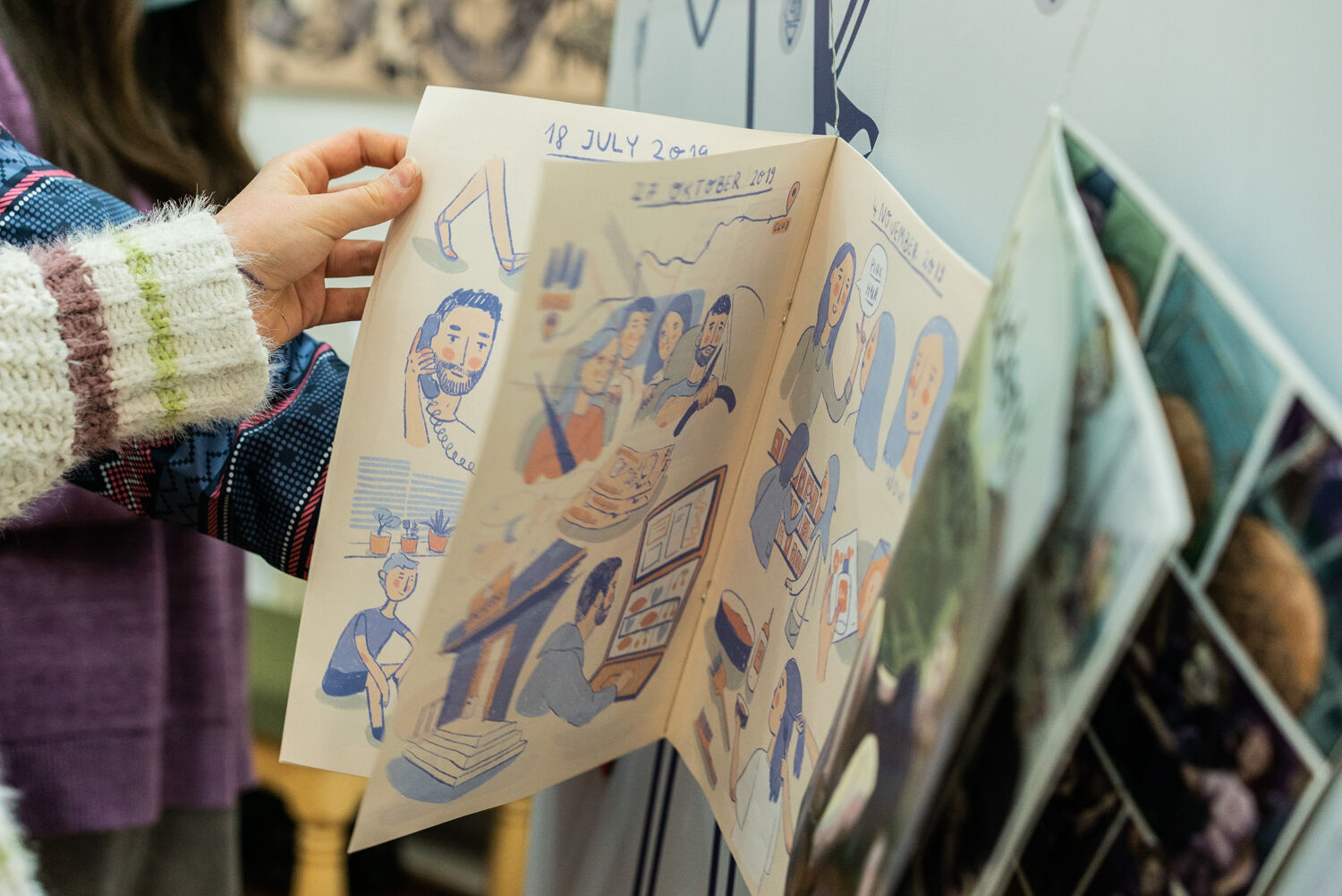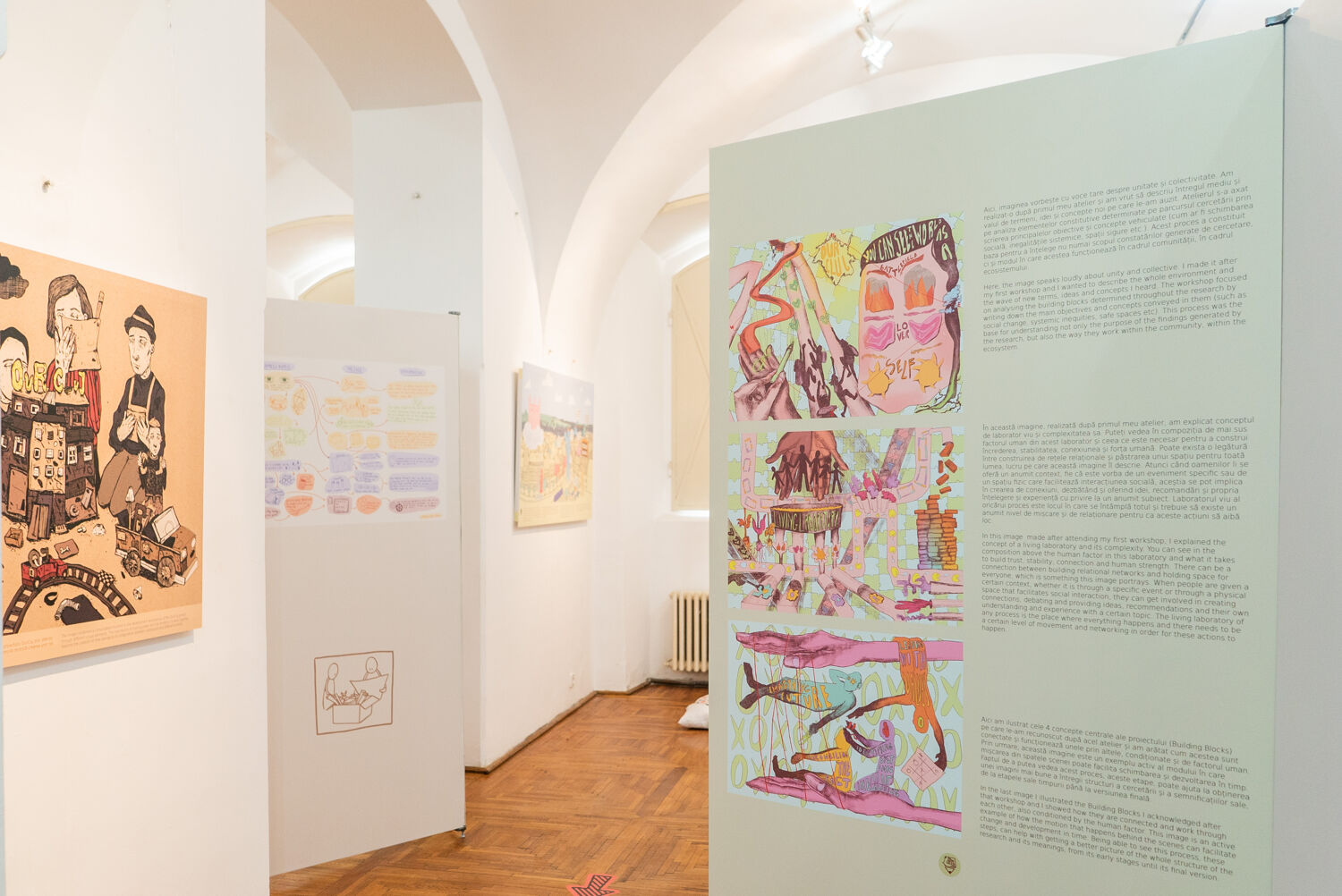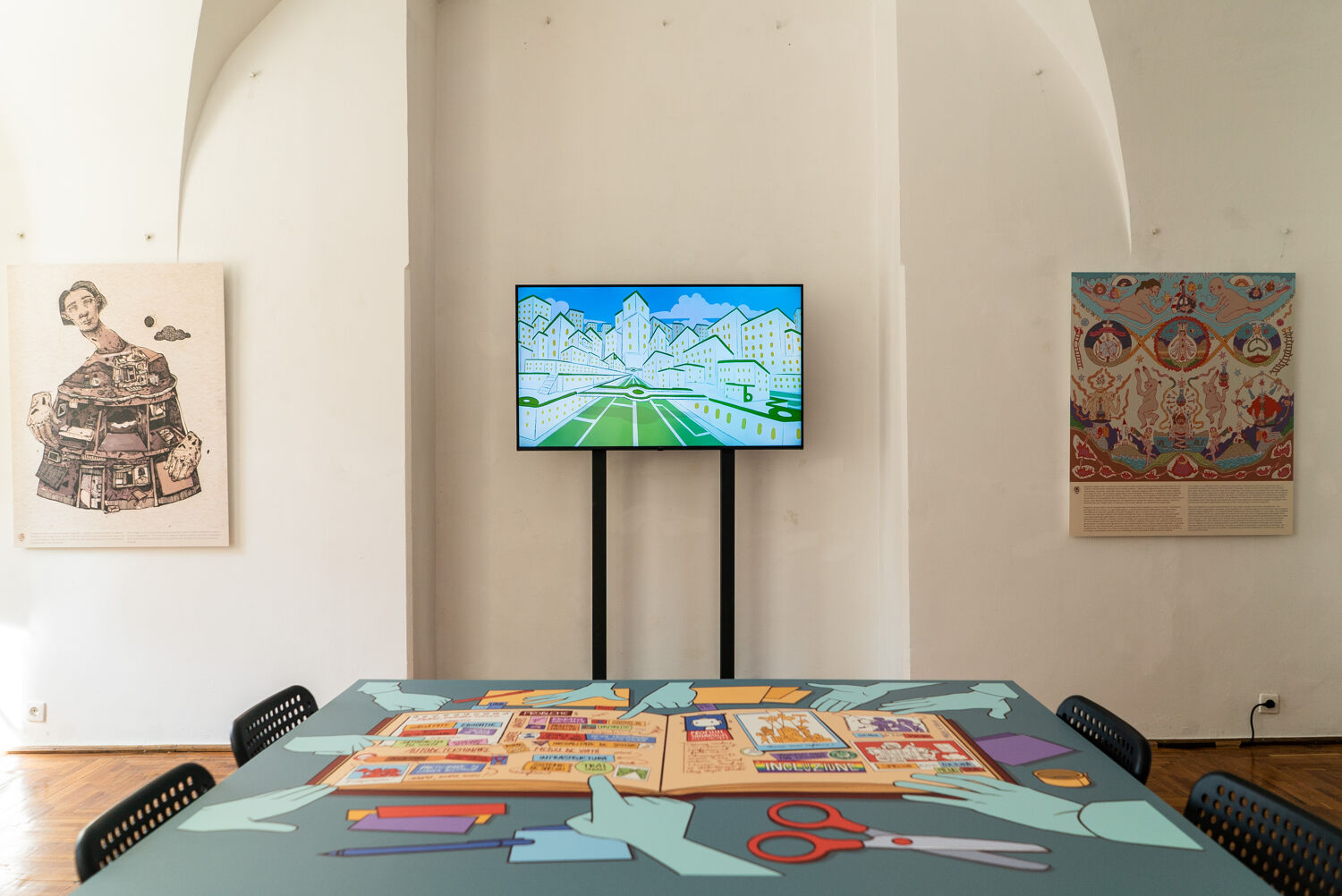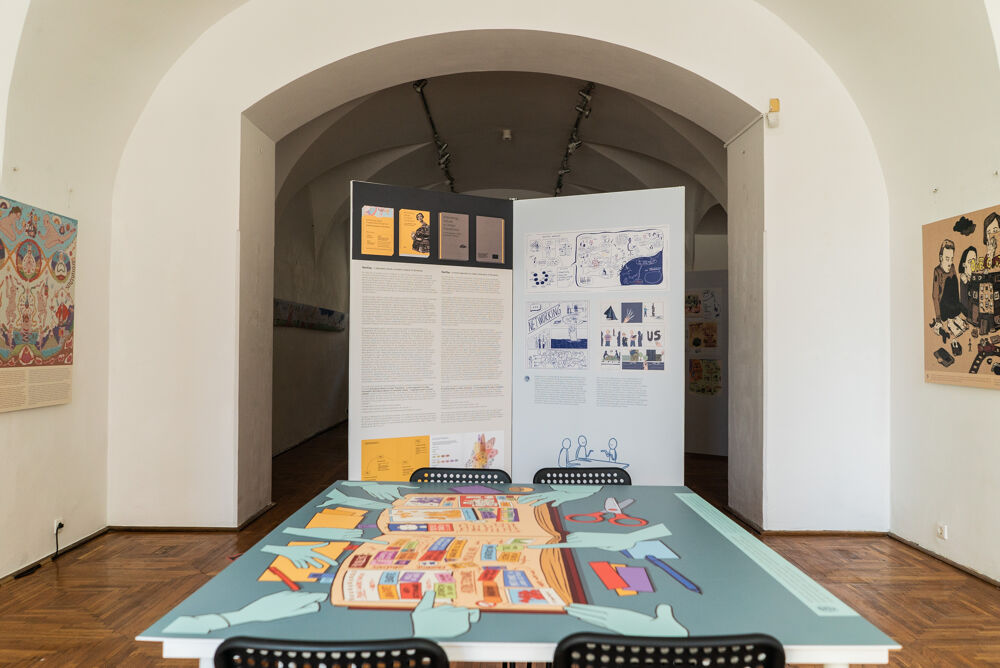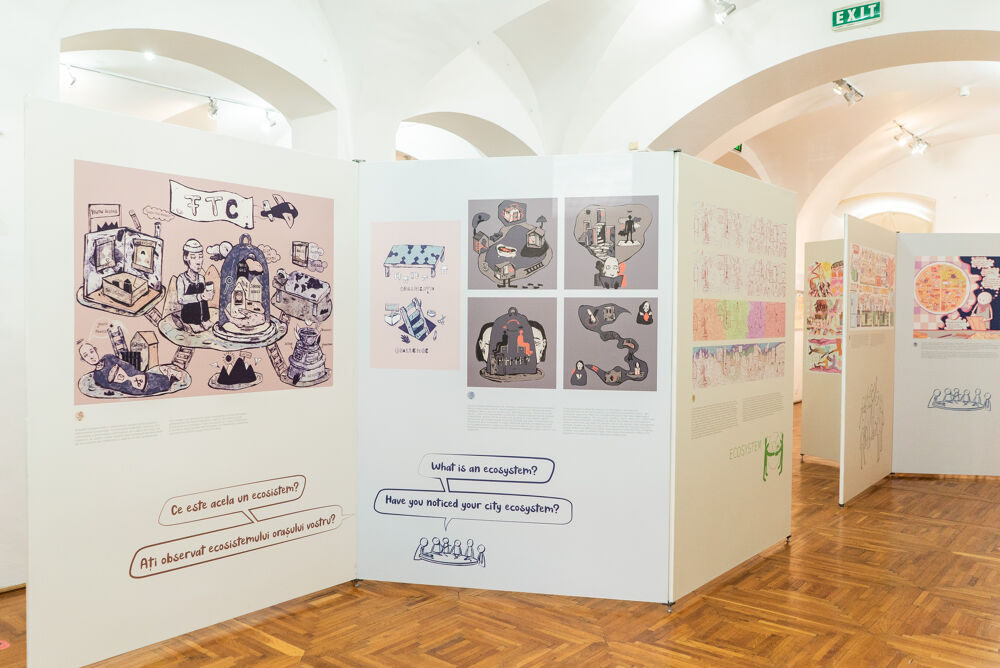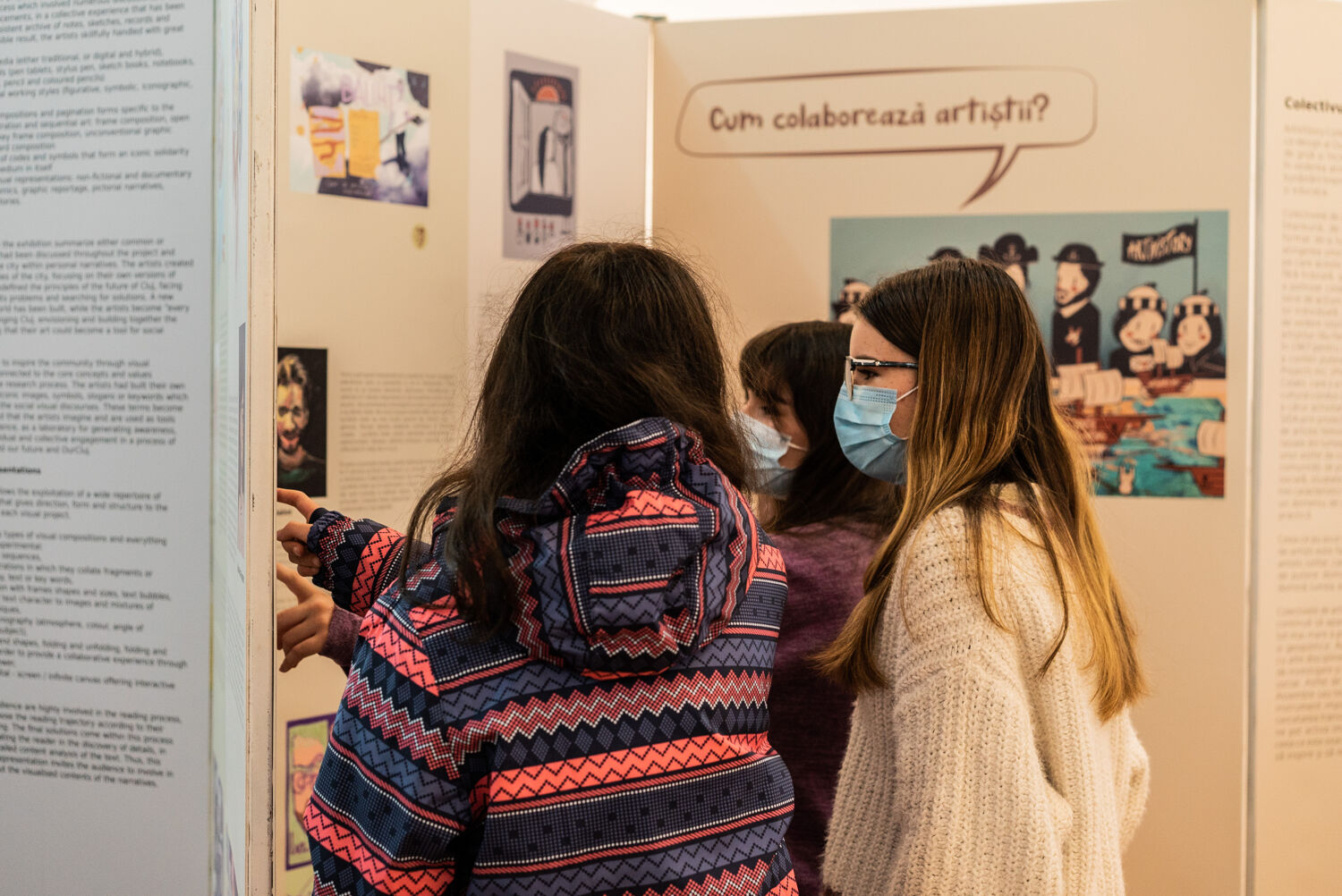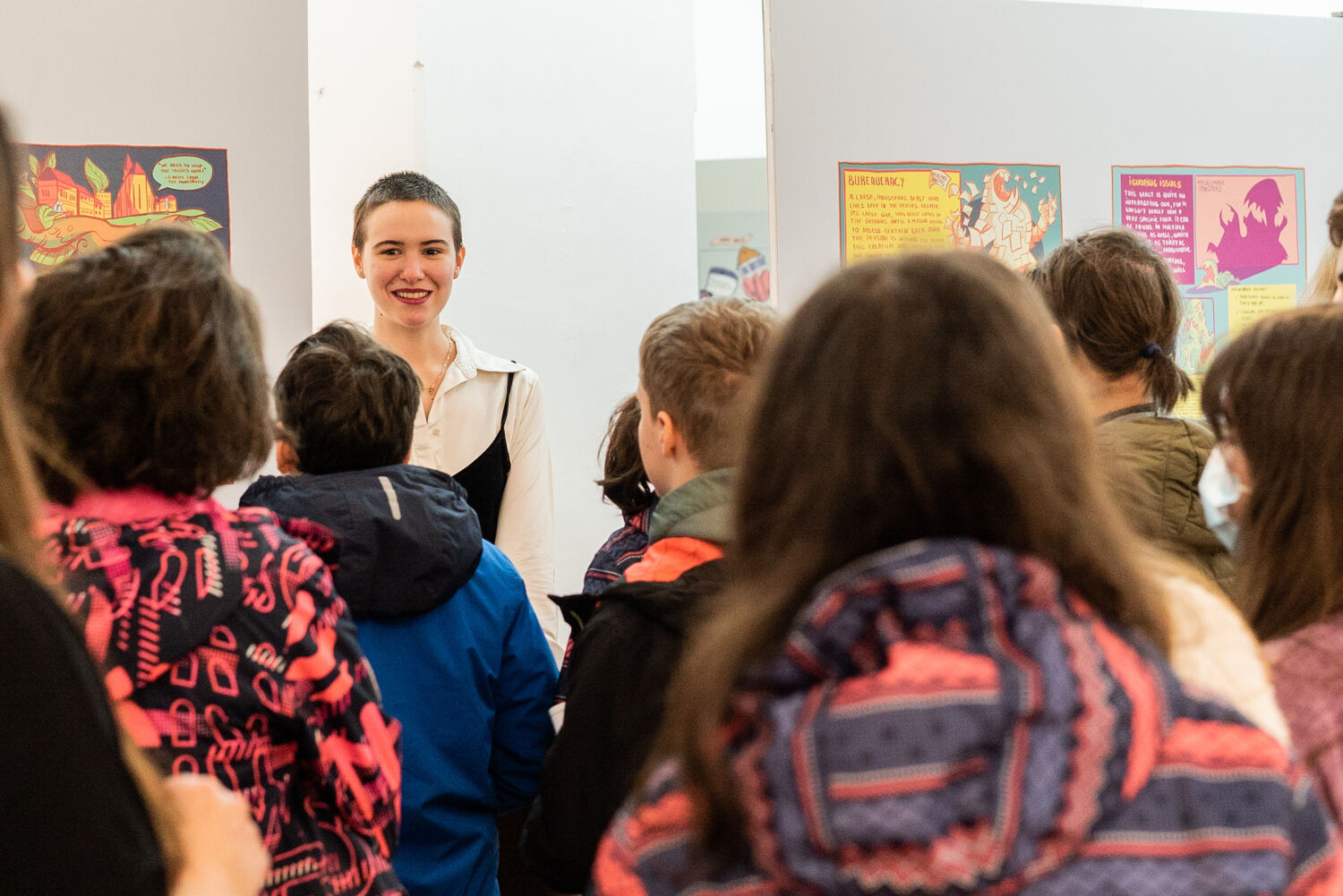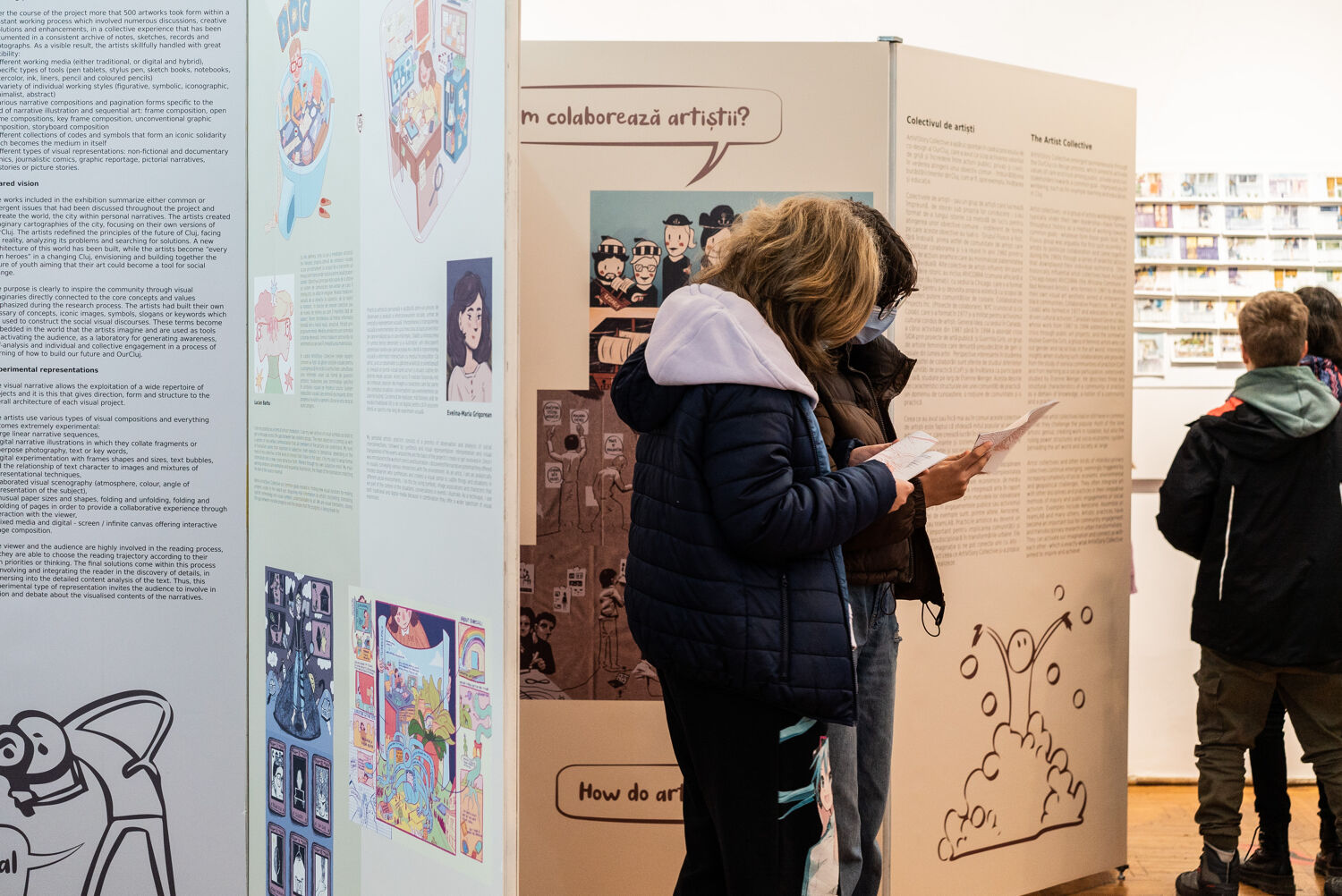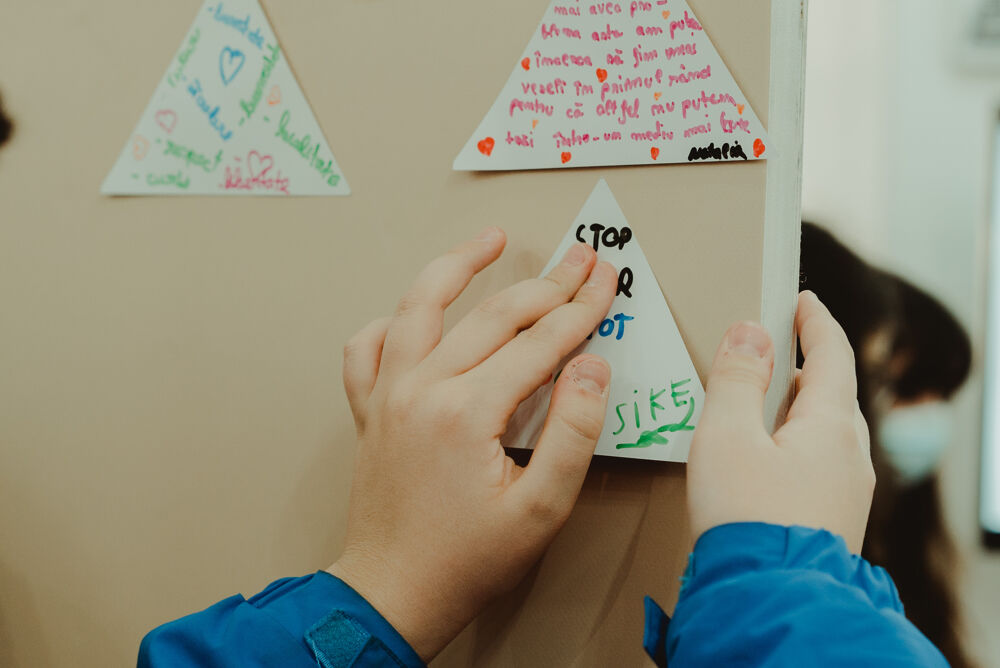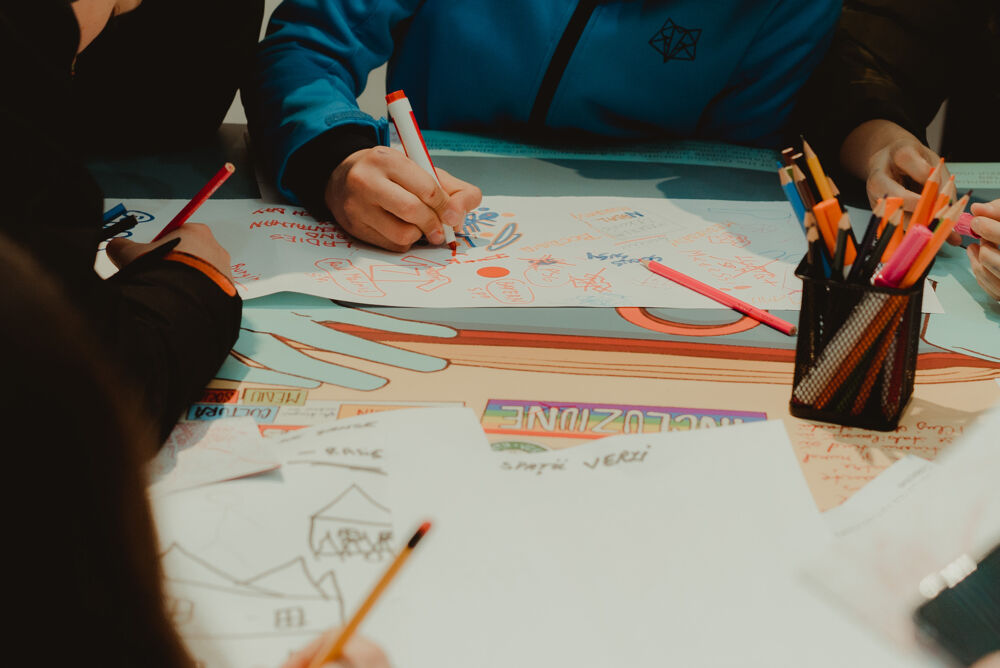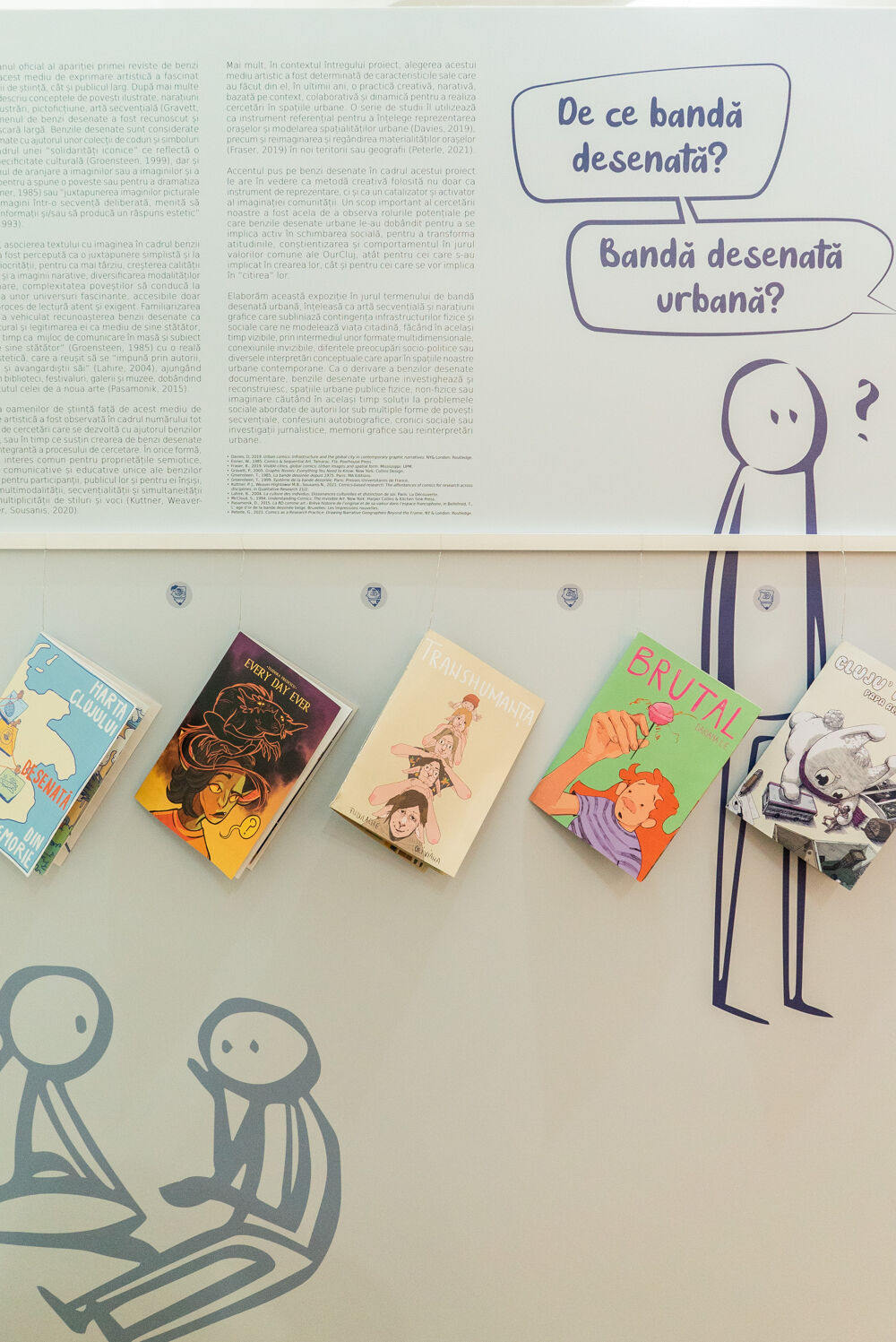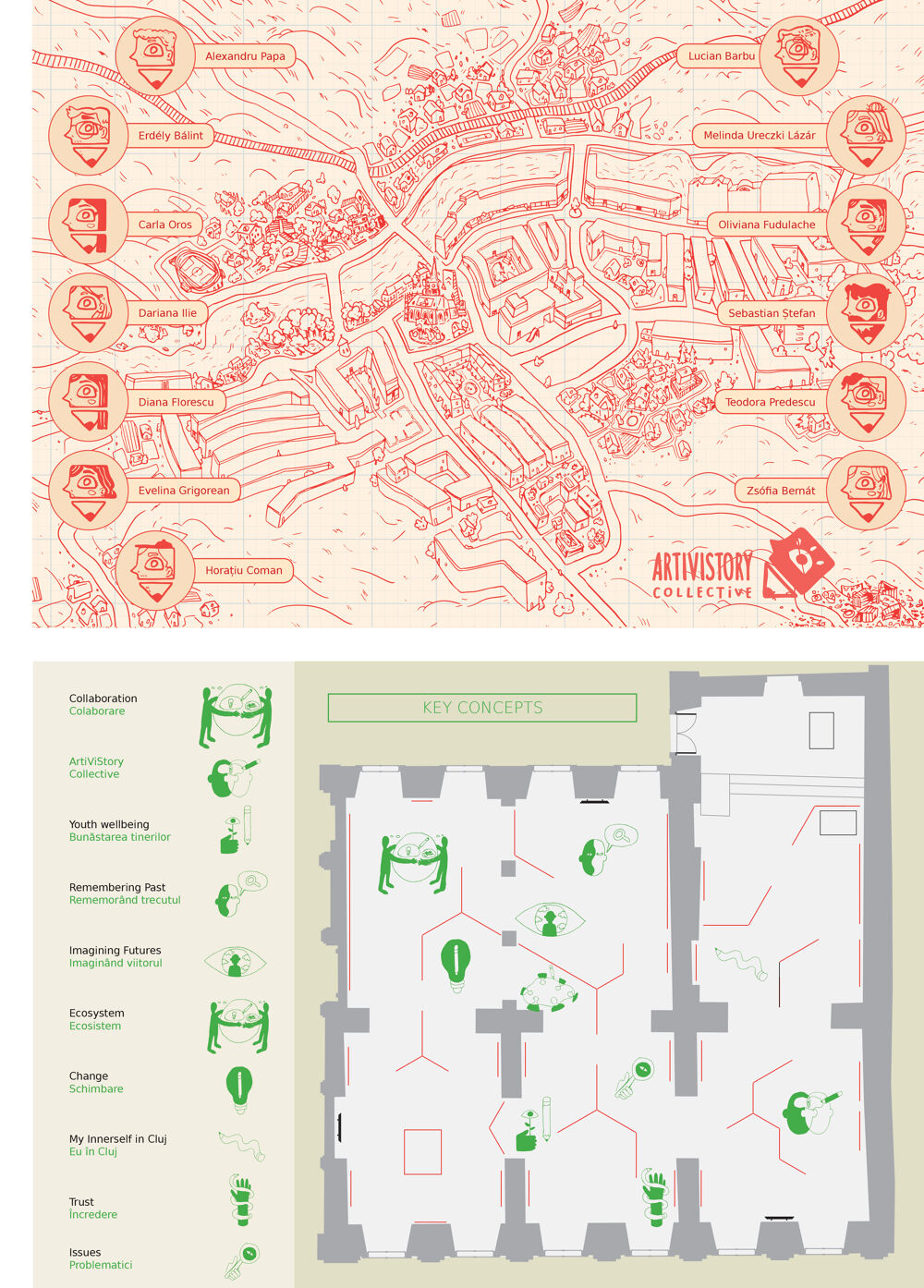IMAGINING FUTURES
Urban Comics from ArtiViStory Collective
March 11, 2022 - March 27, 2022Cluj-Napoca Art Museum

The exhibition explores urban futures and reveals the formation process of the ArtiVistory Collective (Artistic Visual Storytelling), a group of young artists from the University of Art and Design in Cluj-Napoca from the Comics and Cartoons MA program. The artists act as urban imaginaries, who engaged in a unique visual research journey from 2020 to 2022, coordinated by Alice Iliescu. They include Melinda Ureczki Lázár, Lucian Barbu, Evelina-Maria Grigorean, Teodora Predescu, Horațiu Coman, Ștefan Sebastian, Erdély Bálint, Zsófia Bernát, Oliviana Fudulache, Alexandru Papa, Diana Florescu, Dariana Ilie, Carla Oros.
The art collective emerged during the design of OurCluj initiative, which is a novel approach to urban innovation called Values-Based Urban Living Laboratory. Within the context of a democratizing society, OurCluj seeks to advance Cluj’s position in a global innovation economy while cultivating the values that support democratization, namely trust and care. Part of the social research project (in)VISIBLE, artists created a space for collective imagination, or what is called civic imagination. This active imagination, shared with a community of people, can serve to hold together different stakeholder groups and communities with common purpose.
Curated by Alice Iliescu, Anamaria Tomiuc and Daniel Popescu (University of Art and Design Cluj-Napoca) together with the exhibition commissioner Alexandra Sârbu (Cluj-Napoca Museum of Art) and co-designed with Barbara Bulc (SDG Colab) and OurCluj participants, the exhibition is organized as a journey through a series of themes that have been explored in visual narratives and draw the viewer into a reflective path on different ways of perceiving our society. Understanding social issues, remembering the past, exploring the ecosystem, acting on change and imagining futures are the invisible mechanisms of the social innovation initiative that are rendered visible through the creative laboratory in the ArtiViStory Collective. Along the exhibition, the viewer is invited to answer within a self-reflective journey a series of questions such as: What is the role of art in the community? How do we perceive the world around us? What stories can be told about the past? How do we imagine the future? How do we build an inclusive community? How can we engage young people? What if goals of wellbeing were prioritized over economic growth?
Through storytelling, comic strips, animation, sequential art, narrative illustration and other mediums of artistic expression, the exhibition provides a glimpse of this creative laboratory of these artists and renders the sequential art as more than just a representational tool, but as a catalyst for activating the collective imagination. The variety of formulas for exploiting the potential of the graphic and pictorial imaginary and the systems of construction in sequential frames, in which image and text build up visually artistic narratives, are specific to the medium of documentary comics. But even more, the exhibition inquires the role that comics and sequential art could gain in research processes as contributing, through collaboration with different working groups, to social innovation in urban development practices.
The exhibition invites visitors to become active participants and activate imagination and reflect on the role of the arts such as urban comics in social and urban transformation. Without a cultural content to economic and social transformation the problems found in much of development may only accelerate.
About: The UniversitArt Association is a non-governmental, non-profit, apolitical and independent public interest organization established in 2017 within the University of Art and Design of Cluj-Napoca, with the aim of representing the interests of its community, promoting its members locally, nationally and internationally and supporting the university in fulfilling its cultural mission by organizing artistic and scientific events. In the framework of the (in)VISIBLE research project and OurCluj initiative, The UniversitArt Association, in partnership with Barbara Bulc (SDG Colab) and Eric Gordon (Emerson College, Engagement Lab and MIT), and coordinated by Daniel Popescu, supported the realization of the in-depth research study of OurCluj, entitled Activating Values in Urban Transitions - a novel approach to urban innovation in Romania, supported by Fondation Botnar. The publication will be launched in the Spring 2022.
SDG CoLab is a non-profit collaboratory focused on design and research of alternative social structures for the wellbeing of people and the planet. Based in Geneva, Switzerland, it was founded by Barbara Bulc in response to a growing need for systems change, to reimagine our values and relations with care for the society and natural systems as a whole.
Engagement Lab at Emerson College is a laboratory for collaborative learning and research about digital culture and democracy, based in Boston, USA. Led by Eric Gordon, it supports faculty and students in developing practices in their teaching and research that have demonstrable and sustainable social impact.
Fondation Botnar is a Swiss philanthropic foundation working to improve the health and wellbeing of young people living in cities around the world. Advocating for the inclusion of youth voices and the equitable use of AI and digital technology, the foundation invests in and supports innovative programs and research, and brings together actors from across sectors to create dialogue and partnerships. In Cluj-Napoca, Fondation Botnar supports OurCluj, a 10-year urban innovation initiative currently consisting of a network of twelve interlinked social innovation projects, working together with the local government, civil society, the private sector and academia to ensure the well-being of young people in the city. OurCluj is part of OurCity global initiative in several cities around the world.
Funding partner: Fondation Botnar
Supporting partners: University of Art and Design, Cluj-Napoca Museum of Art, SDG Colab, Engagement Lab, Municipality of Cluj-Napoca, Grupul PONT, Cluj Youth Federation (FTC), Cluj Cultural Centre (CCC)
